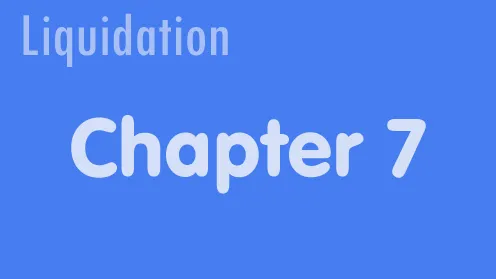What is Chapter 7 Bankruptcy
Chapter 7 Bankruptcy is the most common form of bankruptcy filed by individual debtors. Chapter 7 Bankruptcy is a liquidation proceeding designed for those experiencing financial difficulty that do not have the ability to pay their existing debts. The debtor turns over all non-exempt property to the bankruptcy trustee who then converts it to cash for distribution to the creditors. In the vast majority of cases the debtor keeps all of his property because the debtor has no non-exempt assets for the trustee to distribute. This is called a "no asset case". Soon thereafter the debtor will receives a "discharge" of all dischargeable debts, providing the debtor with a "fresh start". Chapter 7 Bankruptcy is a viable option for most individuals that seek it.
Benefits of Chapter 7 Bankruptcy
A Chapter 7 bankruptcy will get rid of your debt, which means that you are free from the stress of dealing with debt collectors. A bankruptcy probably will remain on your credit report for 7 years, but, your debts, missed payments, and other defaults would also negatively impact your credit rating anyway. The difference is that you are a better credit risk after filing bankruptcy because those that loan you money in future will know that you can't file for Bankruptcy again for 8 years and receive a discharge. Filing for bankruptcy actually is a solid decision, and allows you to get started all over again, instead of simply delaying the inevitable. People that file for bankruptcy often find that the decision to file was most difficult, and also the most sensible decision they ever made.
Free Consultation
